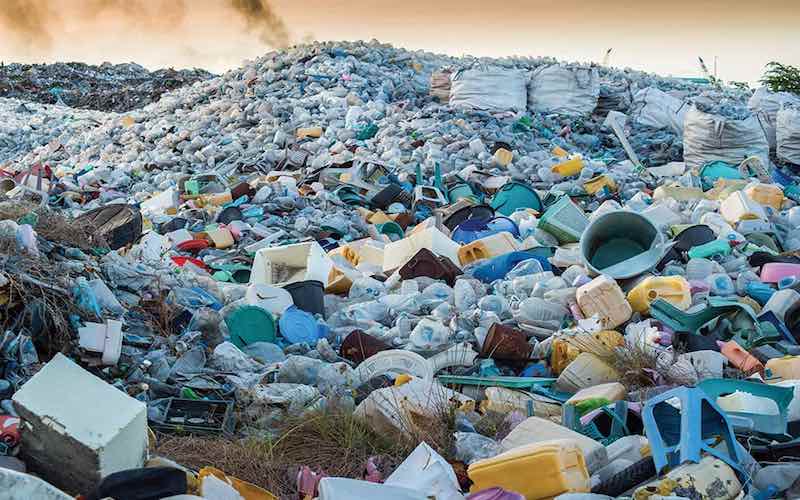
Photo: Shutterstock
August 16, 2022 (CONCORD, N.H.) – Governor Sununu of New Hampshire recently signed into law a bill (SB 367) exempting “advanced recycling” from the state’s solid waste management laws. Conservation Law Foundation (CLF), New Hampshire Healthcare Workers for Climate Action, and the Union of Concerned Scientists (UCS) have filed a petition asking the NH Department of Environmental Services to adopt regulations to address these dangerous technologies being pushed by the plastics industry.
“So-called ‘advanced recycling’ really isn’t recycling at all,” said Tom Irwin, CLF vice president for New Hampshire. “It’s expensive, high-heat technology that effectively burns plastic waste, creating dangerous air pollution. And with Governor Sununu and the Legislature rolling out the welcome mat for ‘advanced recycling’ – making New Hampshire a magnet for these facilities and out-of-state plastics waste – it’s essential that regulators have all the necessary tools to protect the health of our communities.”
The petition requests that the state create new regulations to ensure that New Hampshire communities are protected from the health threats of “advanced recycling” facilities, which emit pollutants such as lead, mercury, and other toxics.
“For decades, the oil industry has intentionally misled the American public about the recyclability of single-use plastics,” said Paul Friedrichs, MD, board chair of NH Healthcare Workers for Climate Action. “Now, as we struggle to deal with this onslaught of plastic waste, it is critical that we do not allow ‘advanced recycling’ facilities to spew toxins into our environment. They must be strictly overseen, and the New Hampshire Department of Environmental Services must take action to regulate them.”
“Advanced recycling” is a term coined by the plastics and fossil fuel industry that refers to technologies that use high-heat processes like pyrolysis and gasification to break down plastic waste into a combination of gas, liquid chemicals, and waste. While the industry claims that these materials are recycled into new plastics, “advanced recycling” rarely results in actual recycling. Instead, these materials are typically burned, creating harmful air pollution and planet-warming emissions that contribute to climate change.
“The climate crisis is already showing up in alarming ways in New Hampshire in the form of more days of extreme heat, homes and businesses at increasing risk to rising seas, and negative economic impacts on tourism and fishing industries,” said Roger Stephenson, Northeast regional advocacy director at UCS. “The practice of ‘advanced recycling’ will contribute to further harm to human health, as well as additional planetary warming if the New Hampshire Department of Environmental Services fails to act. The rulemaking process is vital to ensure public policies aimed at protecting the environment are aligned with science, not co-opted by those with a vested interest in harmful fossil fuels, petrochemicals, or plastics.”
###
